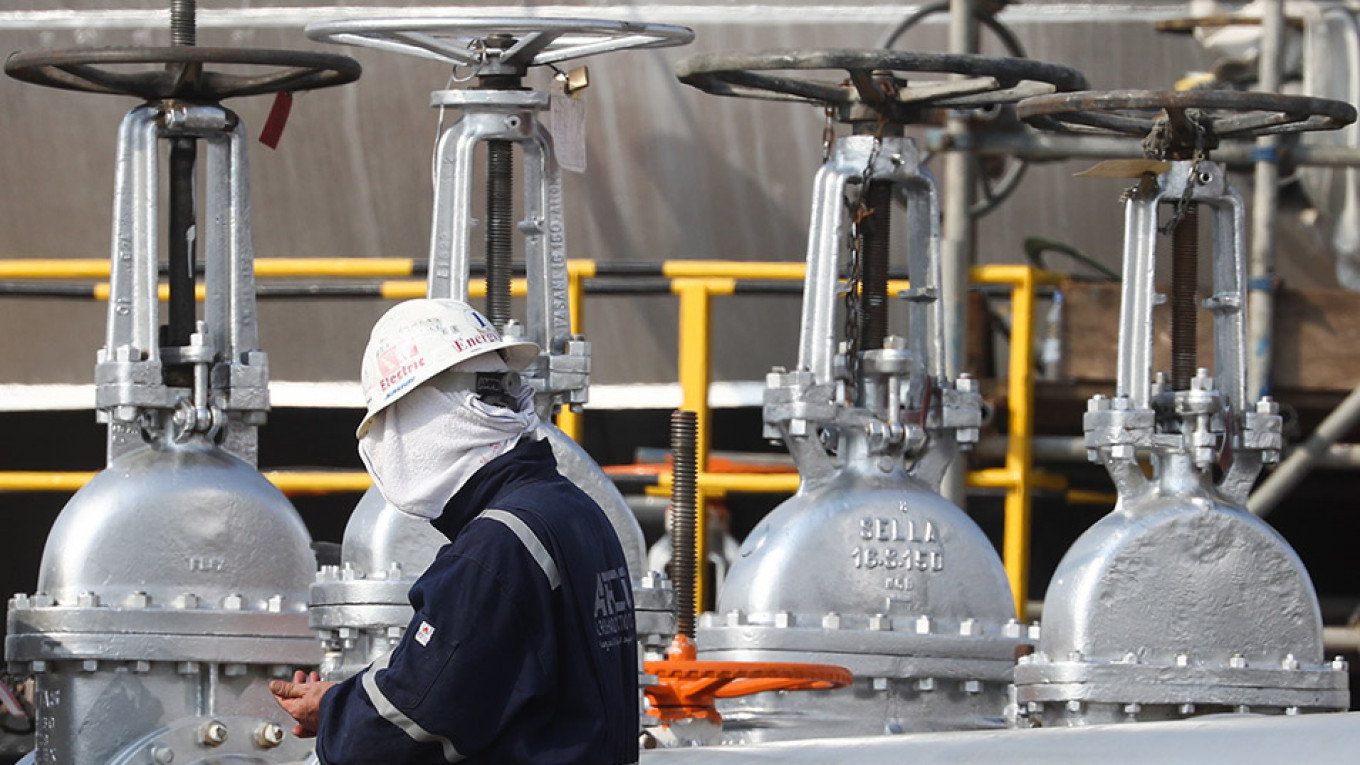
Russia, Saudi Arabia and other members of the Organization of Petroleum Exporting Countries (OPEC), are considering a new round of oil production cuts, as they scramble to respond to falling oil prices amid the coronavirus outbreak.
Russian President Vladimir Putin spoke with the King of Saudi Arabia on Monday evening to discuss the market situation, as prices for benchmark Brent crude slipped below $55 a barrel — down 15% from just two weeks ago.
The call came ahead of a technical OPEC meeting at the cartel’s headquarters in Vienna on Tuesday to decide how the group should respond to the crisis. An emergency meeting of energy ministers from OPEC and other countries, including Russia, which make up the OPEC+ format could take place next week.
“Brent crude below $55 a barrel is the stuff of sleepless nights for OPEC and Russia,” said Jeffrey Halley, an analyst at OANDA. “We will almost certainly see some action, sooner rather than later, from the grouping. Further cuts, though, from OPEC+ are likely only to stabilize prices, not be of the scale to engineer a structural rally.”
“With the Wuhan virus presenting an as yet unquantifiable threat to global growth, oil remains one of the most vulnerable commodities to further bad news.”
Russia’s energy minister Alexander Novak said he would support an emergency meeting next week to coordinate the group’s response. A Kremlin statement issued after the call between Putin and Saudi King Salman bin Abdulaziz said both countries “confirmed their readiness to further coordinate actions in the format of OPEC+ to ensure stability of the global oil market.”
Oil prices ticked up Tuesday in response to the news that the group is considering more cuts.
However, when asked Tuesday whether Russia would be willing to cut its own oil production, Putin’s spokesman Dmitry Peskov refused to answer.
The OPEC+ group has committed to oil production cuts since 2017, in a bid to stabilize oil prices and avoid pumping too much of the black stuff at low prices. Russia has been seen as a lukewarm supporter of the deal. In the latest round of cuts, Russia won major technical concessions which meant it barely had to change its production, and bosses of Russia’s oil companies have also questioned how long Moscow should stay in the deal.
